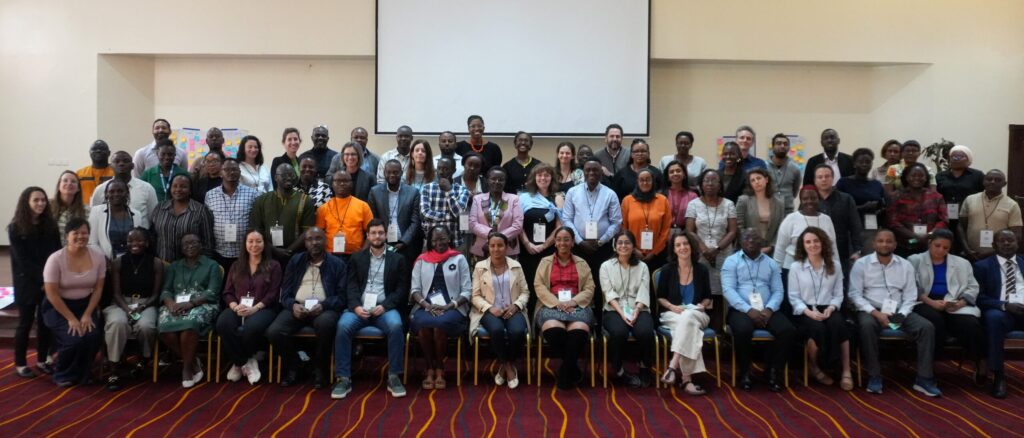
Partners from six countries—Colombia, Ecuador, Ethiopia, Kenya, Tanzania, and Uganda—gathered in Nairobi, Kenya for the first-ever joint convening of two Conrad N. Hilton Foundation initiatives: Early Childhood Development – East and Southern Africa (ECD-ESA) and Refugees. This landmark event united experts and changemakers from across the globe to share insights, experiences and innovative ideas aimed at expanding access to quality child care, particularly in low-income and displaced communities.
Throughout the convening, participants engaged in dynamic conversations and panels centered on financing and scaling quality child care services as well as how best to support government-led efforts around scaling access to child care. These discussions emphasized the importance of supporting young children, their families, and the predominantly women-led child care enterprises that serve them.
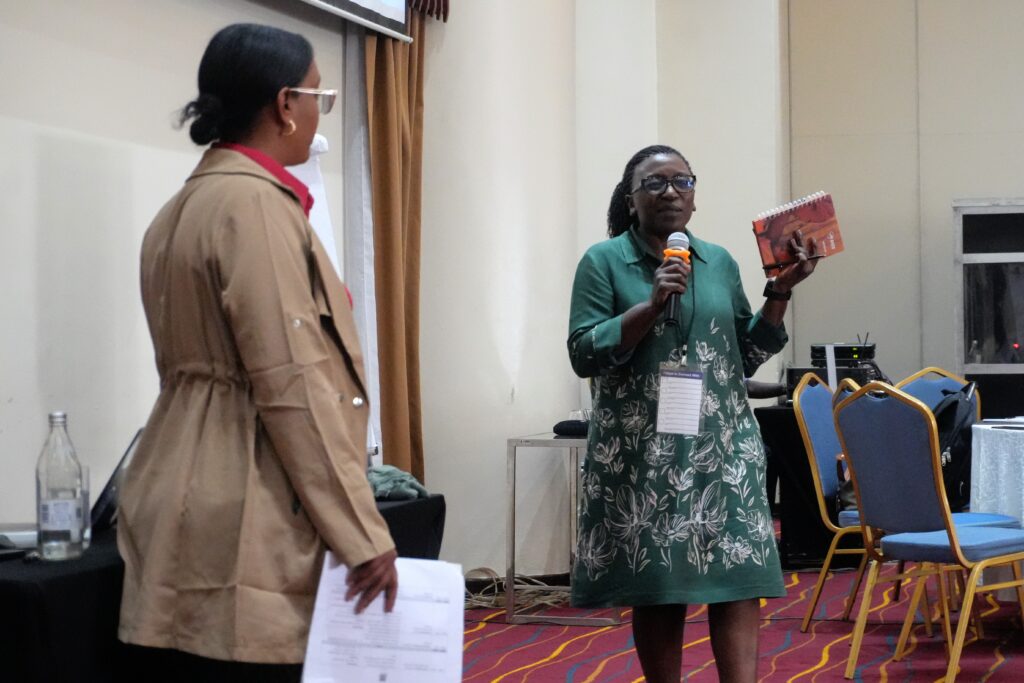
The program created a collaborative space to rethink early childhood development in a rapidly changing world. With a focus on locally led solutions, partners exchanged ideas and strategies to strengthen child care systems in vulnerable communities and unlock sustainable, long-term impact.
As part of our Refugees initiative, Open Capital Advisors (OCA) led a two-part session on Sustainable Financing and Childcare as a Business. Partners from FINCA Uganda, Tiny Totos and FUDELA explored innovative finance models, weighing factors like willingness to pay, sustainability, and equity.
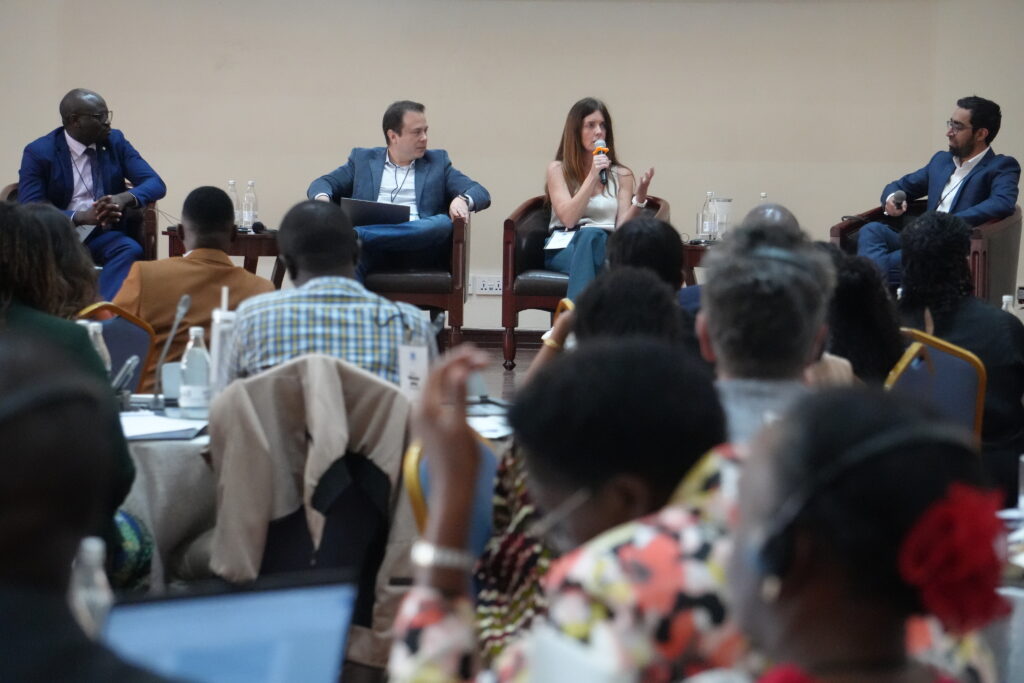
We’ve supported OCA’s efforts to build market-driven approaches that strengthen child care ecosystems in displacement-affected and vulnerable communities across East Africa. In its initial phase, the initiative reached over 30,000 children and caregivers in Uganda and Ethiopia.
During breakout sessions, attendees mapped out sustainable financial pathways. Read more about their discussion in OCA’s blog: Rethinking Sustainable Childcare Financing: Insights from the Conrad N. Hilton Foundation Refugees & ECD-ESA Initiatives Joint Partners Convening.
Sessions also highlighted the critical role of governments in safeguarding children, enforcing regulations and standards, and creating enabling environments for public and private providers to expand access to affordable, high-quality child care.
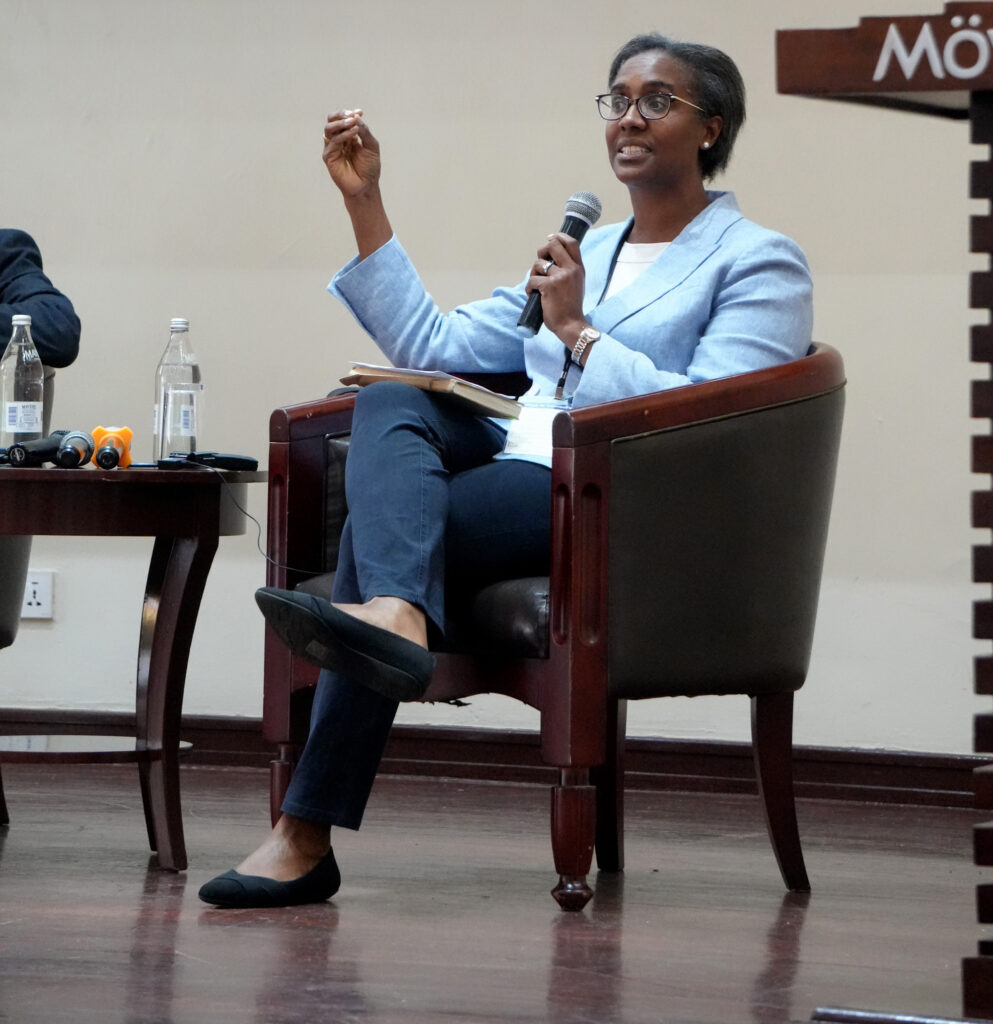
A distinguished panel—featuring Godana Duba Kilta (Addis City), Kizito Wangalwa (Council of Governors Kenya), Rogers Golooba (Uganda Ministry of Education and Gender), and Nicolas Malo Corral (Municipality of Quito)—explored how governments can strengthen quality frameworks, foster inter-agency collaboration, and advance policy initiatives that support local child care infrastructure. Their insights emphasized the need for unified, effective advocacy to drive sustainable change.
The event concluded with an inspiring site visit to Tiny Totos, a Kenyan social enterprise that empowers informal babysitters to become child care entrepreneurs, ensuring every child has access to quality early leaning and care.
Participants explored informal care settings in Nairobi’s low-income neighborhoods, engaging directly with the women who run them and their impact on children’s well-being when nurtured with high-quality, evidence-based care and early learning, The visit also highlighted how caregivers can earn a dignified livelihood through child care, and how that, in turn, enables mothers to pursue work and opportunity.
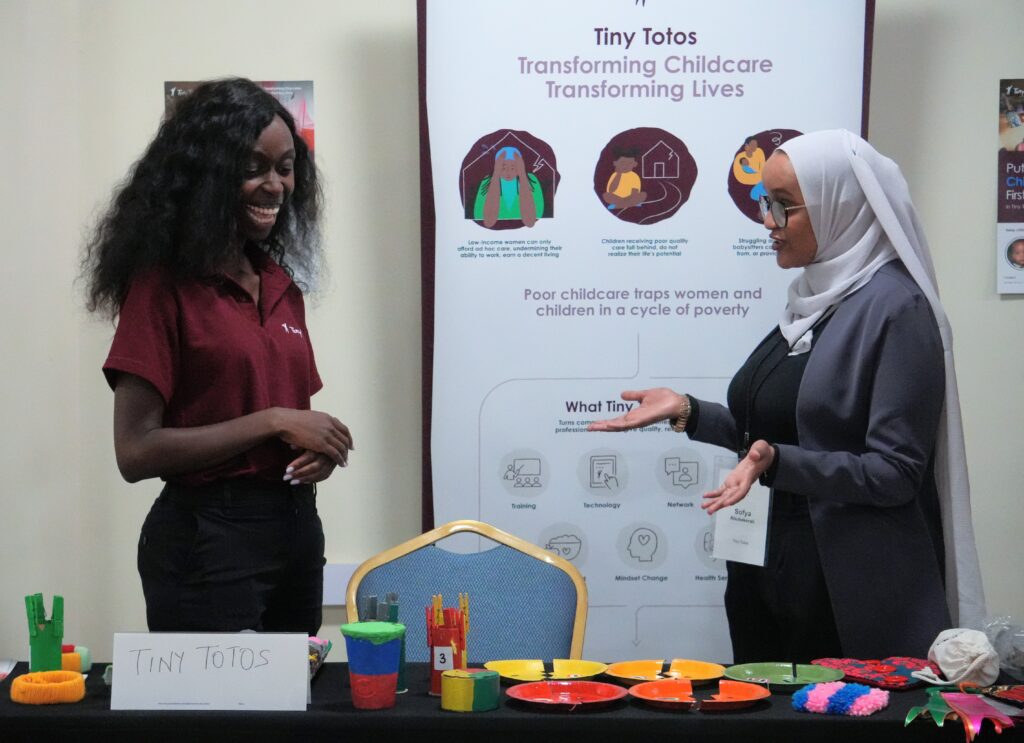
The joint convening of two Hilton Foundation initiatives working in six different countries marked a powerful moment of collaboration across borders, sectors and disciplines. The gathering in Nairobi showcased the strength of shared purpose. When diverse voices unite around a common goal, we unlock new possibilities to build equitable and sustainable child care systems—and ensure every child has the opportunity to grow, learn and thrive.